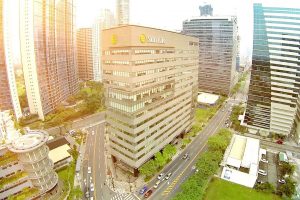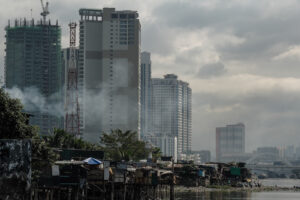The approaching holidays offer a fragile hope for the Philippine economy, but recent typhoons and a deepening scandal threaten to dim the usual festive boost. Analysts warn that delayed government aid and dwindling job opportunities could significantly curb household spending, potentially slowing down economic growth in the crucial fourth quarter.
The impact is already being felt. The nation’s economic growth slowed to 4% in the third quarter, a noticeable dip from previous periods. This deceleration wasn’t simply due to natural disasters; a high-profile corruption investigation into government construction projects has stalled vital infrastructure spending, creating a ripple effect throughout the economy.
Private consumption, the engine driving over 70% of the Philippines’ GDP, is showing signs of weakness. Consumer confidence is declining, and the latest jobs report reveals a slight increase in unemployment to 3.8% in September – a traditionally busy hiring month leading into the holidays.
Labor groups are sounding the alarm. Fewer seasonal hires translate directly to thinner wallets, forcing families to postpone purchases and cut back on non-essential items. Calls are growing for the government to accelerate emergency job programs and prioritize public works projects to immediately restore lost income.
Existing aid programs, while helpful, are often insufficient and plagued by delays. Payouts are inconsistent, and temporary jobs frequently last only a few days – barely enough to offset income lost due to the typhoons. A demand for consistent, timely relief at regional minimum wage levels is gaining momentum.
The disruption extends beyond immediate financial hardship. Natural disasters act as a significant economic shock, impacting business investment, consumer confidence, and even the availability of workers. While officials express optimism about overall employment trends, the near-term outlook remains uncertain.
Experts predict a softening of holiday hiring in key sectors like retail, services, and manufacturing. Sluggish demand for exports, coupled with domestic disruptions, is making businesses hesitant to expand their workforce. This cautious approach threatens the usual surge in seasonal employment.
Household consumption is the cornerstone of the Philippine economy, and its strength is crucial for offsetting weaknesses in government spending or exports. However, income losses and job disruptions caused by the typhoons could suppress growth if families prioritize rebuilding and essential needs over discretionary purchases.
The current situation demands a proactive response. Economists suggest that a strong rebound in spending is vital, but achieving this requires swift government aid, stable prices, and a rapid recovery in disaster-stricken areas. The ability to sustain household spending will ultimately determine the nation’s economic trajectory.
Beyond immediate relief, a deeper systemic shift is needed. Calls are growing for a progressive industrial policy that prioritizes domestic linkages in agriculture and manufacturing, fostering food security, green jobs, and sustainable growth – a strategy anchored in local demand, not just export markets.
The public works scandal has further eroded investor confidence, impacting the stock market and weakening the peso. This underscores the critical need for improved government oversight and transparency to restore trust and attract investment. The current crisis serves as a stark wake-up call for comprehensive economic and political reforms.
Looking ahead, a potential recovery hinges on reforms implemented in 2026. Strengthening institutions and fostering a more stable economic environment are essential for long-term growth and resilience. The coming months will be a critical test of the Philippines’ ability to navigate these challenges and secure a brighter economic future.






